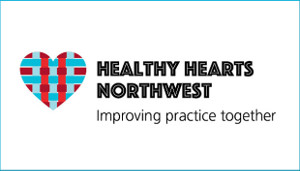
Moving research into action to improve QI capacity and cardiovascular health
The challenge
Across the United States, primary care practices of all shapes and sizes are challenged by scarce resources and limited infrastructure to support quality improvement (QI). As a result, many primary care practices aren't able to put evidence-based practices into action to prevent disease and improve patient health — especially smaller, rural practices.
To address this challenge, the Agency for Healthcare Research and Quality (AHRQ) launched EvidenceNOW to build infrastructure to help smaller primary care practices improve patient health using the latest medical research and tools and to continuously improve patient care. The ACT Center is proud to have been a partner in EvidenceNOW: Advancing Heart Health in Primary Care, through which we led Healthy Hearts Northwest, the initiative's Northwest Collaborative.
The work
Through Healthy Hearts Northwest, we worked with the Oregon Rural Practice Research Network, the Institute of Translational Health Sciences, and 200 primary care clinics in Washington, Oregon, and Idaho to:
- Increase quality improvement capacity by using practice facilitators
- Apply evidence-based strategies to improve cardiovascular care outcomes
- Conduct a rigorous evaluation to understand what types of support helped most to improve performance on key quality measures for heart health known as the “ABCS”: aspirin therapy, blood pressure control, cholesterol management, and smoking cessation
- Assess the sustainability of changes made in QI capacity and ABCS improvements and develop a model of scale-up and spread for improving QI capacity in primary care practices
What we learned
Clinics that received both shared learning opportunities and educational outreach were most likely to achieve target blood pressure goals. This finding suggests that adding these additional supports to practice facilitation may help primary care clinics improve their quality metrics.
We also found that rural, independently owned practices were most likely to accept our offer of support from a practice facilitator. These practices were not only more willing to sign up, but their level of engagement was also higher than other primary care clinics working with facilitators. In addition, improvements in blood pressure control and support for smoking cessation were significantly greater for rural, independent practices than other primary care clinics.
Impact
One of Healthy Hearts Northwest's major contributions is the Quality Improvement Clinical Assessment (QICA). This tool helps primary care practices assess their capacity to implement heart health evidence, identifies areas for improvement and, when completed at regular intervals, tracks practice transformation progress. The team adapted the QICA from the Patient-Centered Medical Home Assessment (PCMH-A), which was developed as part of the Safety Net Medical Home Initiative.
In their executive summary of Healthy Hearts Northwest, AHRQ noted that the QICA "has proven to be one of the most valuable components of the evaluation, and the most helpful roadmap for clinics and their practice facilitators to plan for short and long-term activities. It is associated with ABCS clinical quality measures and tracks closely with observed improvements in QI capacity within each clinic."
Featured publications
Coleman KF, Krakauer C, Anderson M, Michaels L, Dorr DA, Fagnan LJ, Hsu C, Parchman ML. Improving Quality Improvement Capacity and Clinical Performance in Small Primary Care Practices. Ann Fam Med. 2021 Nov;19(6)499-506; DOI: https://doi.org/10.1370/afm.2733. Full text
Tuzzio L, O'Meara ES, Holden E, Parchman ML, Ralston JD, Powell JA, Baldwin LM. Barriers to implementing cardiovascular risk calculation in primary care: alignment with the Consolidated Framework for Implementation Research. Am J Prev Med. 2021 Feb;60(2):250-257. doi: 10.1016/j.amepre.2020.07.027. Epub 2020 Dec 3. PubMed
Fagnan LJ, Ramsey K, Dickinson C, Kline T, Parchman ML. Place matters: closing the gap on rural primary care quality improvement capacity - the Healthy Hearts Northwest study. J Am Board Fam Med. 2021;34(4):753-761. doi: 10.3122/jabfm.2021.04.210011. PubMed
Parchman ML, Anderson ML, Dorr DA, Fagnan LJ, O’Meara ES, Tuzzio L, Penfold RB, Cook AJ, Hummel J, Conway C, Cholan R, Baldwin LM. A randomized trial of external practice support to improve cardiovascular risk factors in primary care. Ann Fam Med. 2019 Aug 12;17(Suppl 1):S40-S49. doi: 10.1370/afm.2407. PubMed
Parchman ML, Anderson ML, Coleman K, Michaels LA, Schuttner L, Conway C, Hsu C, Fagnan LJ. Assessing quality improvement capacity in primary care practices. BMC Fam Pract. 2019 Jul 25;20(1):103. doi: 10.1186/s12875-019-1000-1. PubMed
PROJECT SNAPSHOT
FUNDER
Agency for Healthcare Research and Quality
PARTNERS
Comagine Health
Oregon Rural Practice Research Network
Institute of Translational Health Sciences
Primary care practices in WA, OR & ID
KEY CONTRIBUTIONS
Implementation support
Practice facilitation
Assessment tool
PROJECT LEAD
Michael Parchman

